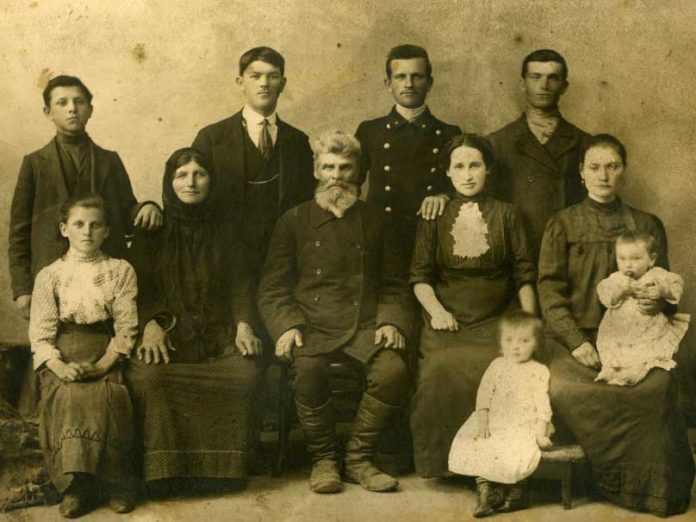You’re probably used to doctors and nurses asking about your family medical history at most of your checkups and appointments. In fact, this is one reason it’s good to have your medical history at your fingertips. As you’re probably aware, you will receive a better level of care at the doctor’s office if you can provide detailed information about your family’s health and illness history.
This crucial information not only has a huge bearing on your daily health–it can also affect your long-term wellness and that of your children. For many reasons, it’s important to find out everything possible about your family medical history.
Top Reasons to Learn Your Family Medical History
According to the CDC (Centers for Disease Control and Prevention), most people have at least one relative who’s had a chronic disease like heart disease, cancer, or diabetes. If the person who had the disease is a close relation, it increases the likelihood that you may develop the disease too.
There are also disorders, like stroke, that you have a greater chance of experiencing if your close family members have experienced them.
But if you know your family history, there are steps you can take to reduce the chances of getting those diseases and disorders.
Another reason to find out this vital information is for your children (or future children). Although you might not have a certain disease, if it runs in your family there’s a chance your children might develop it. If you’re aware of this possibility, you may become better prepared.
Steps You Can Take to Reduce Your Chance of Disease/Disorder
If you find out about a close family member who had a chronic disease, or a stroke or heart attack, there are several actions to take to protect yourself.
Screening Tests
One of the reasons the doctor asks for your family history is to alert him or her to whether you need certain screening tests. For example, if several close family members had breast cancer, there are tests that will show whether you’re at greater risk than normal for contracting this disease. If you’re at greater risk for Type 2 diabetes, you should get your blood glucose screened twice a year. Or, to use another example, if one of your parents had osteoporosis, you should have a bone density screening earlier than average.
Lifestyle Changes
The best thing about knowing your family medical history is that you can take immediate action to prevent the illnesses that run in your family. Here’s a partial list of changes you can make that will help ward off certain diseases:
Osteoporosis: Remember these four critically important vitamins and minerals when it comes to good bone (and overall) health: 1.) Vitamin D3 2.) Vitamin K2 3.) Magnesium and 4.) Calcium. About 80-90% of the population is deficient in one or more of these, especially the first three.
For that reason, I recommend, and take, the following supplements:
- Diamond Nutritionals’ Chelated Magnesium, two twice a day.
- Diamond Nutritionals’ K2 with D3 5,000, one daily, and
- Foundation Vitamins, three once a day.
Make sure to incorporate strength training exercises within your weekly activities to increase bone density.
With proper diet, exercise and natural therapeutic supplementation, it is quite common to stop, and reverse osteoporosis or prevent it altogether.
Heart Disease: If this is a risk in your family, the American Heart Association has a list of seven steps to take, called Life’s Simple Seven. Lifestyle changes include: losing weight, getting more active, eating a heart-healthy diet of low-fat foods, whole grains, nuts and healthy oils, lots of fruits and veggies, and little red meat. Follow your doctor’s advice as to proper screening for you.
Breast Cancer: Increasing your activity levels, proper nutrition, and lowering your alcohol consumption can go a long way to warding off this disease. As we have discussed in previous articles, genetic and biomarker testing is available. Follow your doctor’s advice as to proper screening for you.
Melanoma: If you have a close family member who had this type of skin cancer, your dermatologist will likely recommend office screenings at least once a year along with monthly self exams. Here’s some information on how to do a self examination. This is important for everyone to do, even more so with a family history of melanoma. In addition, you can reduce your chances by covering up when in the sun and wearing sunscreen daily.
How to Find Your Family Medical History

The first place to start collecting family medical history is by talking to your family! Ask your mom how her parents passed away, if you don’t already know. Chat with your grandparents about their relatives. Find out everything you can about all your relatives through conversation.
Another thing to try is to research documents like death certificates or family medical records.
BONUS TIP: The Surgeon General’s office has a tool where you can keep a record of all the family medical history you uncover in one convenient place called My Family Health Portrait.
What to Do if You’re Adopted
If you’re adopted, chatting with relatives might not be an option. In the case of an open adoption however, make the effort to find out everything you can from your birth parents. Also, some adoption agencies keep information about the biological parents.
According to U.S. News and World Report, many states are opening birth records for adoptees to make the search for family medical history easier. There are also volunteer “search angels” who help adoptees uncover this vital information as well as non-profit groups to assist, which an online search can help you find.
—
Photo credits:
- mikle / bigstock.com
- Wavebreak Media Ltd / bigstock.com








